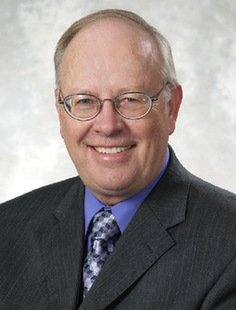Time zones and languages
- By Eugene Clark
 0 Comment(s)
0 Comment(s) Print
Print E-mail China.org.cn, December 16, 2012
E-mail China.org.cn, December 16, 2012
|
|
|
Eugene Clark |
I first came to China in 1995 as part of a China-Linkages grant awarded to the University of Canberra Law School to support a partnership with China University of Political Science and Law (CUPL). In the course of the last 17 years it has been exciting to see the great progress made by CUPL, Beijing and China generally. I am now honored to have the opportunity of deeper involvement with CUPL and China as part of China's Foreign Expert Global 1000 program.
One of those points of progress in recent years has been the rapid growth of e-commerce and e-government. In e-commerce, witness the record volume of online shopping that occurred on November 11. In terms of e-government, note the rapid growth of government microblogs that facilitate not only transparency but greater interaction between government and citizens. I will address both of these developments in later articles.
E-commerce and e-government, however, do not occur in a vacuum. For this reason, I start this series of articles by making two comments on recent speeches made by General Secretary Xi Jinping who has emphasized the need for China to remain open and engaged with the world. He has also stressed the importance of the rule of law and need to foster a learning society.
I label these two comments: Time Zones and Languages
1. Time Zones
Every country must live simultaneously in three time zones-past, present and future. As General Secretary Xi has noted, China must remember, renew and build upon its 5000 year rich historical and cultural heritage. This is important not only for China, but the world which will also benefit from this rich tradition of literature, culture, medicines, architecture, music, and other areas of learning that have been part of China's development
However, a society is not static, it must continue to grow and improve and this takes hard work and dedication by individuals, organizations and institutions. While remembering the past we must focus our efforts and energies in solving the problems of the present. This will require talented people adopting rigorous analysis combined with hard work, excellent processes and best practices to find the best way forward to achieve our goals.
Finally, we must today live in and prepare for the future. The best way to plan for the future is to take steps now to create it. What we do today will determine what our future will be. We must begin to tackle now the mid and long term issues to be faced by China and the world so that we create the optimum design to ensure that the future will be a positive one. Examples include planning for an aging society, the provision of sufficient food and developing the full potential of the Internet for better commerce, government and society.
2. Languages
By 'languages' I do not mean different foreign languages, but use the term more broadly to refer as well to the languages spoken by different areas of expertise. Carrying out the task of renewal and meeting the challenges ahead will require input from all disciplines (social sciences, sciences, business, and the creative arts) and a dialogue with all stakeholders, including experts and practitioners around the world. It thus speaks highly of the General-Secretary that among his first meetings and speeches was to a group of foreign experts. As a law professor, I am particularly impressed that the government has recognized the importance of including legal experts given the centrality of law, and especially comparative law, for the peaceful development of all countries in a global and inter-connected economy.
China must be open and willing to engage with the world in order to become a learning society that will create or adopt best practice wherever it is found and use that knowledge to create a solution that is best suited to China. By following this path China will remain an innovative of country and play a vital and leading role in creating solutions that will benefit not only China, but the global world in which we live. That world is increasingly small and inter-connected. Our problems are complex and their resolution requires the involvement, insights and input of all stakeholders and fields of learning so that we may find holistic and workable solutions to the challenges ahead.
The author is a columnist with China.org.cn. For more information please visit: http://www.china.org.cn/opinion/eugeneclark.htm
Opinion articles reflect the views of their authors, not necessarily those of China.org.cn.







Go to Forum >>0 Comment(s)